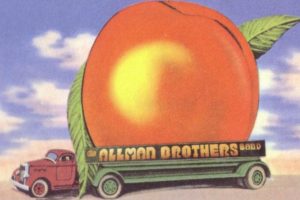In Aug. 2020, the U.S. Centers for Disease Control warned consumers not to eat, serve, or sell loose or bagged peaches packed or supplied by Prima Wawona or Wawona Packing Company LLC.
 Peaches were sold in bags and individually (bulk/loose peaches).
Peaches were sold in bags and individually (bulk/loose peaches).
If you can’t tell where the peaches are from, don’t eat them. Throw them out.
Don’t eat food made with these peaches.
Check your kitchen and refrigerator for recalled peaches. If you freeze fresh peaches to use later, check your freezer, too.
Retailers that sold these peaches include Aldi, Food Lion, Hannaford, Kroger, Target, Walmartand Wegmans.
The recalled bulk/loose peaches were sold in grocery stores through August 3, 2020 in various ways, typically loose in bins for shoppers to select.
The peaches may have the following stickers with Price Look Up (PLU) numbers on them: 4037, 4038, 4044, 4401, 94037, 94038, 94044, 94401. However, not all peaches with these PLU codes are supplied by Prima Wawona. If you are unsure of the brand or variety of your loose peaches, you can contact your retailer or supplier, or throw them out.
Brands and product codes for recalled peaches sold in bags include:
Wawona Peaches – 033383322001
Wawona Organic Peaches – 849315000400
Prima® Peaches – 766342325903
Organic Marketside Peaches – 849315000400
Kroger Peaches – 011110181749
Wegmans Peaches – 077890490488
Wash and sanitize places where peaches were stored, including countertops and refrigerator drawers or shelves.
Restaurants and retailers, as well as suppliers, distributors, and others in the supply chain, should clean and sanitize any surfaces that may have come in contact with recalled peaches, including cutting boards, countertops, refrigerators, and storage bins. If peaches from other sources were mixed with recalled peaches, all peaches should be discarded.Prior to the CDC announcement, the Canadian Food Inspection Agency (CFIA) warned warned the public not to consume and retailers, distributors, manufacturers, and food service establishments such as hotels, restaurants, cafeterias, hospitals, and nursing homes not to serve, use, or sell the products described below.
 Prima Wawona, located in Fresno, California, has recalled fresh peaches with various brand names due to possible Salmonella contamination. Various importers in Canada are conducting a recall of the affected products.
Prima Wawona, located in Fresno, California, has recalled fresh peaches with various brand names due to possible Salmonella contamination. Various importers in Canada are conducting a recall of the affected products.
Martin Wiedmann, a professor of food safety at Cornell University, told the New York Times, “The challenge with salmonella is salmonella can really enter or contaminate food almost anywhere in the whole chain. It could start from a field or an orchard, where salmonella could be introduced. It could be in a facility where the product is packaged. It could be from a human who carries salmonella.”
Customers who have the peaches at home, even if they are frozen, should not eat them and should toss them out immediately, the F.D.A. said. They should also throw away any items that were made with the peaches. Health officials also recommend cleaning and sanitizing the area where the fruit was kept, because it may have come into contact with and contaminated surfaces or containers.
This is important because, according to Dr. Wiedmann, salmonella is incredibly resilient.
“Salmonella is very good at surviving in the environment,” he said, “so there are examples where salmonella lived in an environment, a built environment — a processing plant or a building — for years.”
Food and Drug Administration official Mark Moorman told The Packer the “smarter” era of food safety has not yet arrived.
Moorman, director of FDA’s Office of Food Safety, spoke about the agency’s food safety goals on Aug. 20 at the U.S. Apple Association’s online 125th Annual Crop and Outlook Marketing Conference.
Recall of onions from Thomson International Inc., Bakersfield, Calif., were still occurring as of Aug. 20, Moorman said.
He reviewed the four pillars of the New Era of Smarter Food Safety:
Tech-enabled traceability;
Smarter tools and approaches for prevention and outbreak rsponse;
New business models and retail modernization; and
Food safety culture.
He said the vision for the future is for a much more responsive food safety system, with end-to-end traceability.
“I want to be very clear with this group looking very hard and in our own culture and we are asking ourselves how do we influence consumer behavior,” he said.
Asked whether apples are low risk because they don’t come in contact with the ground, Moorman noted the current recall of peaches, which are linked to an outbreak of salmonella.
“I would agree in general that apples are a lower-risk (food), but all of us should remain humble, and recognize that the world of
